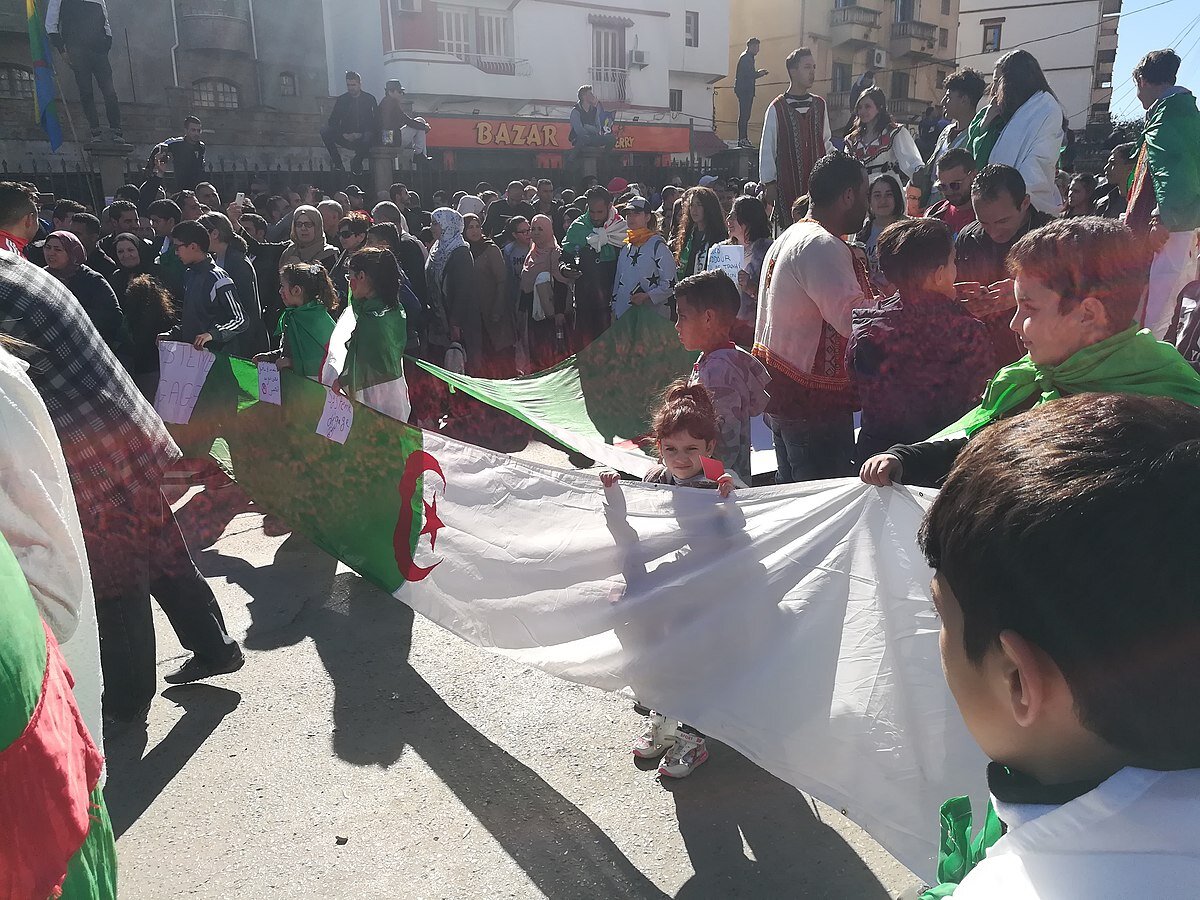Protests in Algeria Continue Despite Newly Scheduled Elections
Algerian people protesting in the streets. (Wikemedia Commons)
Algeria is set to hold elections on December 12 after more than six months of nationwide protests. Long-serving President Abdelaziz Bouteflika left office in April as a result of these protests. “Elections are the only democratic solution to the crisis,” Interim President Abdelkader Bensalah said on September 15.
The Algerian public reached a breaking point this winter after years of rising unemployment rates and rampant corruption among the elite. The mass protests began in February after the former president announced his bid for a fifth term in office. Bouteflika and his powerful circle of generals and businessmen, known as le pouvoir, or “the power,” had ruled the country since 1999.
Algerians continued to protest in the streets even after Bouteflika withdrew his bid for reelection and are demanding a complete overhaul of the current political system. The army-backed government that took over after Bouteflika’s resignation cancelled the elections previously set for July 4 due to a lack of candidates. Protesters are voicing their displeasure with the current government, calling for “a civilian, not military state.”
Due to mixed signals from the current government, there is some worry that the upcoming elections will not be as free as the public hopes. The authorities have been trying to calm protesters by prosecuting several of Bouteflika’s allies accused of corruption. However, to the dismay of many, the police have been cracking down on protesters and jailing dozens, including several prominent opposition leaders. Demonstrators are now calling for the removal of General Ahmed Gaid Salah over fears that he may hamper free and fair elections.
“The people want the fall of Gaid Salah,” the protesters chanted. “Take us all to prison, the people will not stop.”
A fairly recent development in mass protest movements such as Algeria’s has been the rapid increase of fake news and disinformation spread on social media.
The size and duration of the protests in Algeria are unprecedented, and the Algerian people show no signs of being satisfied with recent efforts at reform.

